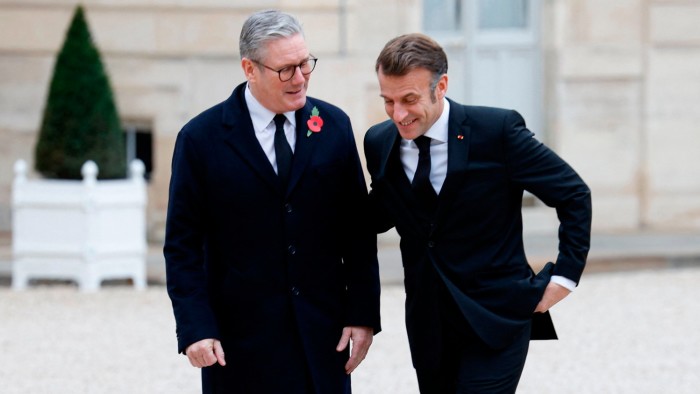Unlock the White House Watch newsletter for free
Your guide to what the 2024 US election means for Washington and the world
The author is a former permanent under-secretary at the Foreign and Commonwealth Development Office, chair of Chatham House and founding partner of Flint Global Ltd
President Trump’s reckless actions have scrambled British foreign policy. Although they present some tactical opportunities, these mask a serious strategic dilemma.
The opportunities lie in using Britain’s detachment from the EU to seek preferential treatment in regulation and trade. The dilemma lies in the need to decide where the UK’s enduring economic and security interests lie. While the immediate goal is to limit the damage, retain leverage where possible and buy time (and the government is doing a good job of this), the longer-term challenge cannot be ducked.
Voices arguing that America is the UK’s first ally have hitherto been right and economic ties remain crucial. But within three months the US has unilaterally reversed policy on Ukraine, made overtures to Putin, sandbagged the multilateral rules of trade and halved UK predicted economic growth. Things may get better but it would be rash to think that “normal” service will resume. Changed circumstances require a reaction.
The strategic pillars of Labour’s foreign policy, close relations with Washington and better ties to the EU, now look contradictory. Keir Starmer is right in arguing that Britain does not have to make a binary choice, but he will have to make many individual ones — on tech regulation, trade preferences, digital tax, defence procurement, Ukraine and China policy. Each will carry consequences.
Debate about Britain’s relationship with fellow Europeans since Brexit has too often been seen through contentious secondary issues like fishing quotas, the rights of touring artists and movement of young people. It is time to reframe the agenda around more existential matters. Europe is Britain’s geographical home. America does not share its proximity to Russia, wider neighbourhood, or immigration challenges. Nor, increasingly, does it share British social attitudes or views on international co-operation. Troubled as they may be, most European democracies still do.
The UK should work with comparable European countries, notably France and Germany but also Italy, Poland and others, to protect our common security. This should pave the way for a more constructive discussion on both sides of how the UK can better engage with the EU on vital shared priorities: growth, capital market development, competitiveness, productivity and investment.
The UK should also look wider. Beyond the egregious humiliation of Canada, a striking feature of Trump’s tariffs has been the targeting of Asia-Pacific countries that President Biden did much to cultivate — Japan, Korea, Australia, New Zealand and Asean members.
When America behaved as a reliable ally, I was sceptical that British foreign policy should pivot towards the so-called middle powers. But it is an idea whose time has come. With the US and China locked in a structural power battle, Britain should seek to preserve the systems in which middle-sized, open democracies who believe in the rule of law and rules-based markets can exercise influence and continue to offer a persuasive model.
This need not mean building new institutions. It will often be more efficient to hold on to and adapt parts of existing international apparatus. Coalitions of the willing, based around shared interests on a single issue, will be a powerful instrument of the new diplomacy.
Working with fellow Europeans and other middle power democracies is both a strategic opportunity and a route away from over-dependence on America. The UK is well equipped to play a leading part in such a foreign policy evolution, as it is already demonstrating in Ukraine. But it will require imagination, resources and political courage.




